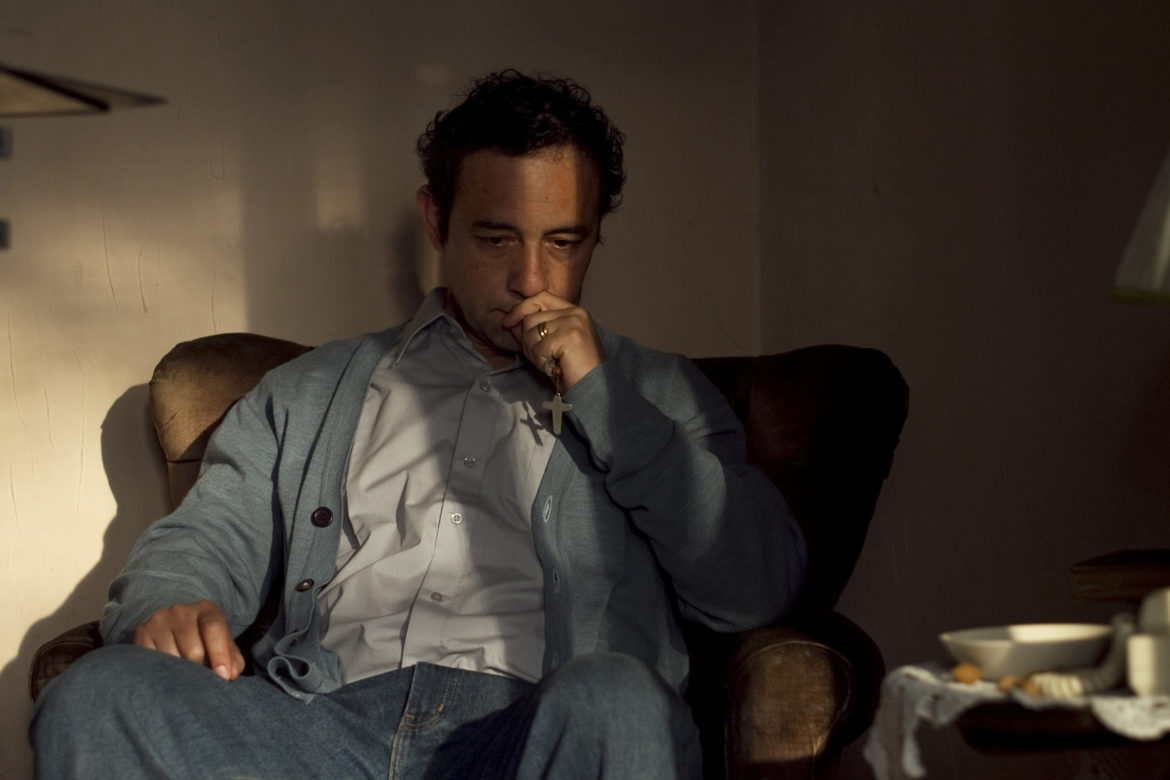Juan Francisco Olea’s feature debut is a curious and not entirely comfortable mix of tones and themes. Is it a “black comedy”? That’s what the promotional materials promise. Yet it is never funny, although plenty bleak. It has moments of levity, but veers more towards an existential examination of doubt, faith, and action. The Coen’s A Serious Man got there several years ahead, and did it much better. Still, it has aspects to recommend it, even if those aspects seem at times in complete opposition to each other. El Cordero is like several films fighting to emerge. The one that does fails to satisfy their individual promises.
Domingo (Daniel Muñoz) is a devout Christian, a loving husband and father. His life is so run of the mill that even the local priest seems bored with his confessions, dutifully doling out penance for mundane transgressions that barely even need it.
One night, Domingo encounters who he takes to be thieves at a warehouse he’s responsible for, and shoots one of them. As it happens, they were lovers just looking for a place to hook up. It’s a tragedy for all involved, but for Domingo it’s a revelation – he has killed, wrongly, and discovers he feels no guilt whatsoever. Nothing. His life is structured around penitence for laughable sin, but actually killing someone weighs on him as lightly as possible. He’s intrigued.
Almost as an experiment, he sets out to sin some more. Maybe sin itself is what he has been missing in his life – and surely, if such things were as morally atrocious as he assumes, God would punish him for them. And yet He does not. Domingo pulls pantyhose over his face and prowls the night, stealing and otherwise violating his own ethical code, as though on a dare from the universe. Still nothing. If anything, he seems more confident than before.
It could be said that he’s “tormented” by his lack of guilt, but that’s not how it plays. Olea structures Domingo’s crimes as a comedy, though a fairly laughless one. There’s not much torment to be found. Domingo remains respected in the community, and, in a dark closing act twist, finds himself exalted and much more comfortable in his own skin for a truly heinous act. We close with a bourgeois sense that everything is right with the world.
Olea is Chilean, and there’s a likely subtext here about how repressed crime runs through the body politic. But El Cordero can’t match this ambition. Muñoz has the face for the titular lamb, placid and willing to go along, but the film itself doesn’t pack the punch it means to. It’s mildly amusing at one moment and then jarringly unpleasant the next. The pieces don’t fit.
There are moments that seem to indicate where this could’ve gone, but they are few and far between. Overall, it’s attractively shot by Leonardo Diaz, and many of the performances are solid. But it’s a film that thinks it has more to say than it actually does, and takes too long to say it.

